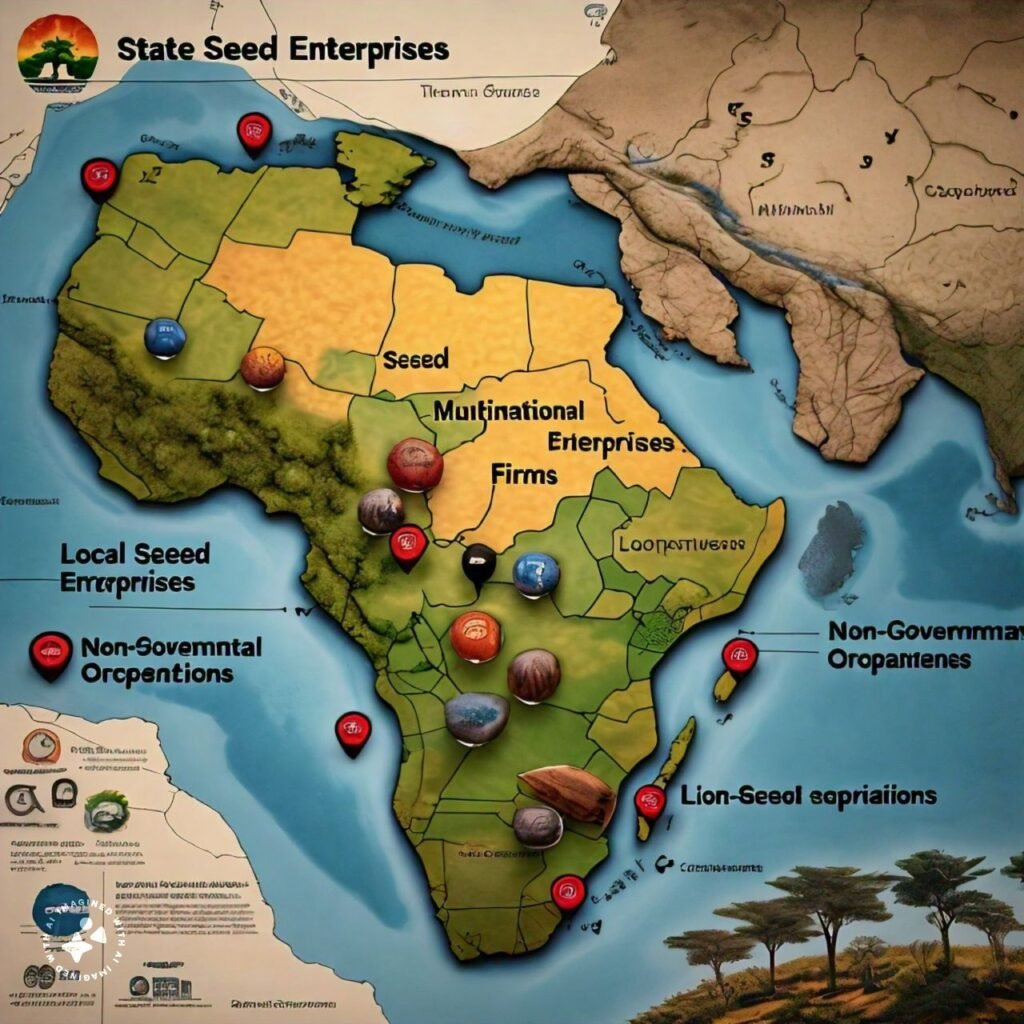By Prof Arun Tiwari
IMAGINE the possibilities with a pan-African seed certification system. It could revolutionise our agricultural practices, ensuring the quality and adaptability of our seeds and ultimately leading to a more sustainable and prosperous future for African agriculture. Sub-Saharan farming has long experienced issues due to its reliance on foreign seeds. In the 1970s and 1980s, scientifically designed high-yield seed varieties of wheat and rice led to the Green Revolution in Asia. Several projects in sub-Saharan Africa were created to develop better seed varieties, with international donors providing funding.
Funds were mainly utilised to construct seed storage facilities, processing plants, and laboratories, and international consultants were paid for fees and hospitality. With most of the money gone in this process, seed farm workers were instructed to work on compensation. The worst thing that happened was that the farmers gave up hope. Because the unit that manufactured the seeds also tested the seeds, and due to government pressure to produce seeds, every grain was distributed as seed, causing farmers to lose faith.
Donors claimed they developed the infrastructure and advocated for privatisation, bringing in overseas seed firms. Public-sector Zamseed and Tanseed turned nonviable. It is no exaggeration to say that good seeds have never reached farmers. But can’t this be changed? The saying ‘Those who cannot remember the past are condemned to repeat it’ stares upon us. The history of agriculture, particularly the era of high-yield varieties, provides valuable insights regarding the risks of monopolistic activities, biodiversity loss, and farmer exploitation through seed control.
We must learn from these blunders to safeguard African agriculture’s long-term viability and equity. More funding is needed for seed research, breeding, production, and distribution infrastructure to ensure the creation and availability of regionally appropriate seed varieties. Public sector investment in agricultural research and extension programmes is frequently minimal, leaving farmers with few options other than imported seeds.
Over the past few decades, there has been a consolidation trend within the seed industry, with a few large multinational corporations dominating the market. Companies like Bayer (which acquired Monsanto), Corteva Agriscience (formerly DowDuPont), Syngenta (acquired by ChemChina), and BASF have acquired numerous smaller seed companies, consolidating their control over seed production and distribution. The overwhelming dominance of multinational seed companies in crucial crops like corn, soybeans, cotton, and wheat restricts farmers’ rights to save and replant seeds from their harvests.
significantly reduce the time required to generate new lines with desirable features, allowing food to reach dryland populations faster. India’s growing demand for pigeon pea exceeds a million tonnes per year, highlighting the importance of the open-access protocol in sub-Saharan Africa. Seed certification entails closely monitoring each round of seed multiplication to verify protocols are followed, the genetic identity of the variety is preserved, and seed testing and labelling are completed.
There is merit in replacing required certification with voluntary certification for at least 10 years. Even in the United States, seed certification is optional, allowing seed businesses to rely on their reputation rather than certification to reassure farmers about seed quality.
Seed certification is voluntary in India, but labelling is mandatory, and this could be the benchmark for sub-Saharan Africa; Africa already has a bar-code system via mobile phones.
Sub-Saharan Africa can boost agricultural output considerably and contribute to global food security. However, more infrastructure, such as transportation networks, irrigation systems, and storage facilities, could have helped Africa’s agricultural potential.
Investment in infrastructure is critical for improving market access, lowering post-harvest losses, and increasing agricultural productivity. Investing locally in seed research and development promotes agricultural innovation specific to African conditions. This could result in novel seed varieties that address African farmers’ particular issues, such as soil deterioration or water constraints.
The state seed enterprises, multinational corporations, and their proxies – local seed companies and other nongovernmental organisations and cooperatives – must reach a pan-African consensus on certification, not for profit, but to benefit smallholder farmers. This can be a virtuous development. State seed firms may have declined overall, but they can still provide credible competition to the commercial seed sector.
This is what China and India have done: the private sector is prospering under the government’s watchful eye thanks to seed legislation that lays down the game’s rules and defines the allocation of responsibility between various agencies and the private sector. If it can happen in Asia, why not in Africa?
Professor Arun Tiwari is an Indian Missile scientist and author.

